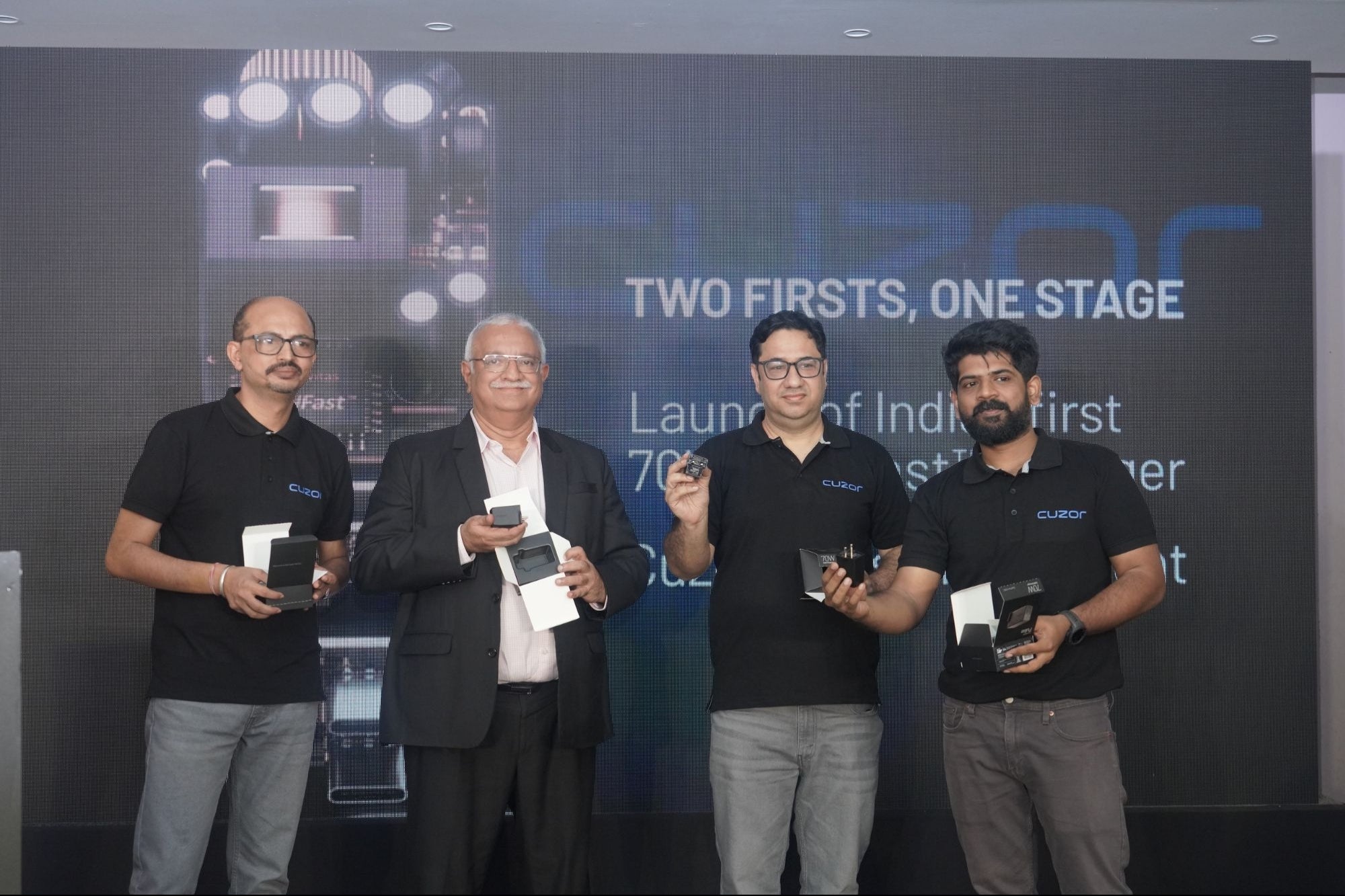Cuzor Bags ₹5 Cr Seed Funding From Kaynes, Longer Gestation Causing Funding Gaps: Founder Cuzor Labs announced an INR 5 Crore seed round, marking a first angel-investment from Ramesh Kannan, Founder and Managing Director of Kaynes Technology India Limited, underscoring growing confidence in India's ability to build globally competitive hardware.
Opinions expressed by Entrepreneur contributors are their own.
You're reading Entrepreneur India, an international franchise of Entrepreneur Media.

Indian consumer hardware startups, despite gaining a lot of interest from investors, suffer from actual investment deals because of a longer gestation period and other factors, according to Sachin Naik, Founder of Cuzor Labs.
Speaking to Entrepreneur India at the company's new funding announcement, Naik said, "Because hardware, when you talk about building a product, it has a longer gestation period. In India, it takes at least 8 to 12 months, and only then will you see whether it is going to succeed once it is in the market, and the next steps. So, the appetite for seed VCs to sit in this space when you want to raise, say, 10 to 15 crore, is very, very low."
Cuzor Labs announced an INR 5 Crore seed round, marking a first angel-investment from Ramesh Kannan, Founder and Managing Director of Kaynes Technology India Limited, underscoring growing confidence in India's ability to build globally competitive hardware.
Speaking at the event, Ramesh Kannan said that India will not become a product nation by chance, and it will happen by choice and by design.
"Imagine an India where young people not only write code, but also design and build world-class products, where Made in India truly means imagined and created here. That future will need patient investors, bold founders, and strong entrepreneurs. I have always believed that Indian engineering and manufacturing can stand shoulder to shoulder with the best in the world. I'm delighted to support their journey and look forward to Cuzor emerging as a leader in India's consumer electronics space," said Kannan.
Cuzor, currently holds a 41 per cent market share in the Mini-UPS category, has now forayed into the fast-charging segment of GaN chargers with its new product, named the 'The Cuzor Pulse 70W' - India's first 70W GaNSense™ based charger to be fully designed, engineered, and manufactured domestically.
Research firms report that India's battery charger market hit USD 879.3 million in 2024 and is projected to grow to USD 1,278.8 million by 2033, with a moderate CAGR of approximately 4.3 per cent driven by rising smartphone, laptop, and EV adoption, fast-charging tech, and wireless solutions, according to data from Imarc group.
Naik further pointed out that product companies being here and building a scalable size, especially in consumer electronics, are very few. And this trait can only be attributed to companies like Atomberg and not many other players.
"If there had been one or two success stories where a brand has scaled, it would have been way easier for people to assume that this is a path a particular brand will take and invest. I mean, there are zero success stories, to be honest, barring one or two. And that I think is a primary reason that at least the companies of our scale hardly get interest."
According to Naik, policy tweaks and faster access to components would go a long way in accelerating hardware innovation.
"India doesn't make its own components. We have to get components from outside today. The PLI for components is coming in, and it will take at least 6-7 years for India to say, Okay, we are producing components. But currently, even in hardware, you need to start your prototyping and get into production as quickly as possible."
Naik hinted that the government should get involved, inaugurate schemes that work with larger organizations like Kaynes and Dixon. "When a small company comes in, you at least leave certain production capacity for them, which would help. We don't need large incentives. Small policy tweaks like this can get things going," added Naik.










